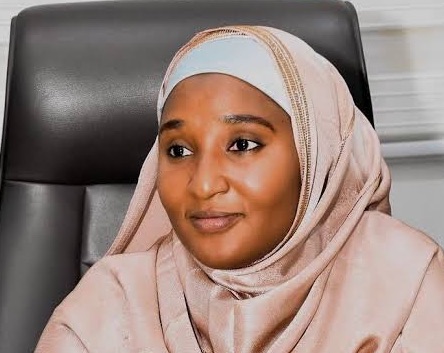From Fred Ezeh, Abuja
Large number of Polytechnics, Monotechnics and Innovation Enterprise Institutions (IEIs) displayed the creativity and innovations of their students at the 2025 annual exhibition of creativity and innovation organised by the Federal Ministry of Education through the Polytechnic Education and Allied Institutions Department.
Minister of State for Education, Prof. Suwaiba Ahmad, who visited the exhibition ground in Abuja, expressed satisfaction with the products that have come out of the Polytechnics and allied institutions, promising more support for improved research.
The Minister who was represented by Dr. Uche Uba, Director, College Education, said the Federal Ministry of Education recognizes the crucial role that creativity and innovation play in the economic development of any nation, stressing that the world is evolving rapidly, and technological advancements are reshaping industries, economies, and societies.
She said: “It is imperative that we, as a nation, embrace these changes by fostering a culture of innovation, entrepreneurship, and technical excellence among our youth. This annual exhibition serves as a platform to showcase the remarkable ingenuity of students from polytechnics, monotechnics, and IEls across Nigeria.
“It provides an opportunity to display groundbreaking ideas, pioneering inventions, and practical solutions to contemporary challenges. Through this event, we reaffirm our commitment to equipping our young minds with the skills necessary to compete in a globalized economy.”
She said the Federal Ministry of Education, in collaboration with relevant agencies and stakeholders, remain steadfast in its support for technical and vocational education.
“We will continue to implement policies aimed at strengthening research, development, and innovation within our institutions. We are determined to bridge the gap between academia and industry, ensuring that the skills imparted to our students align with the demands of the labour market,” she added.
Permanent Secretary, Federal Ministry of Education, Dr. Sani Gwarzo, in his remarks, said the role of polytechnic education in national development cannot be overstated as they serve as incubators for technical skills, vocational expertise, and solutions that contribute immensely to the country’s industrial and technological growth.
Dr. Gwarzo who was represented by Dr. Saheed Yusuf said the annual exhibition provides an opportunity not only to unveil ground breaking ideas, but also to forge strategic partnerships that can drive innovations from concept to commercialization.
He commended the polytechnics, allied institutions. and all participating individuals and organizations for their dedication to research, creativity, and problem-solving, insisting that the projects and prototypes on display reflect the remarkable potential embedded in Nigeria’s educational system.
“Your contributions align perfectly with the Federal Government’s policy of promoting science, technology, and innovation-driven education, a cornerstone of our national development agenda,” he said.
He re-emphasized that the exhibition is not just a showcase of individual talent, but also a celebration of the collaborative spirit that defines Polytechnic education. “It is a collective achievement that reflects the dedication of all those who have contributed to the creation, development, and presentation of these remarkable innovations.”
Dr. Ejeh Usman, the Director, Polytechnic Education and Allied Institutions Department, Federal Ministry of Education, in his remarks disclosed that seven Federal Polytechnics and other IEIs are participating in the exhibition with 82 different projects.
The institutions include; Federal Polytechnic, Nekede, Owerri, 13 projects; Federal Polytechnic, Ilaro, Ogun State, 14 projects; Federal Polytechnic, Oko, Anambra State, 10 projects; Federal Polytechnic, Nasarawa, 1 project; Federal Polytechnic, Bauchi, 3 projects; Auchi Polytechnic, Edo State, 20 projects; Akanu Ibiam Federal Polytechnic, Uwana, Ebonyi State, 1 project.
The projects, however, include fabrication, manufacturing and production of essential goods and services using local raw materials that can improve daily needs and positively contribute to the growth and economic wellbeing of the country.

